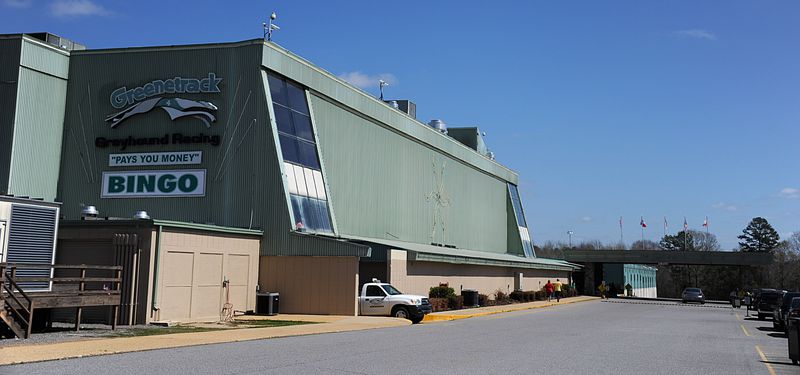Most of the United States has long-ago approved various forms of gaming – scratch off tickets, casinos, video poker machines inside VFW halls.
Alabama remains an outlier, where most forms of commercialized gambling are illegal.
That has not stopped lawmakers from weighing comprehensive packages before. Casinos and lottery have long been part of gambling considerations. Within the past five years, sports betting has been added to the mix.
Alabama also has bingo halls long established in some of its poorer areas within the state. Those facilities bring jobs and revenues to areas starving for both, and lawmakers in the Black Belt have been hesitant toward approving any comprehensive gambling plan that would erode that.
“The folks who represent their areas, especially when we are talking about charity bingo in the state, are dependent on the local revenues that come from those entities,” said state Senator Chris Elliott, R-Daphne. “They don’t want to see that money go away. They are insistent that if we talk about a lottery, their gaming interests are blessed.”
The last time a comprehensive gambling package was almost approved by state lawmakers was in 2021.
Alabama lawmakers in 2023, are sitting out on the gambling debate. Not one piece of legislation has been introduced this session to legalize gambling of any form.
Here is a look at some forms of gambling not allowed in Alabama, and what is at stake:
Sports betting
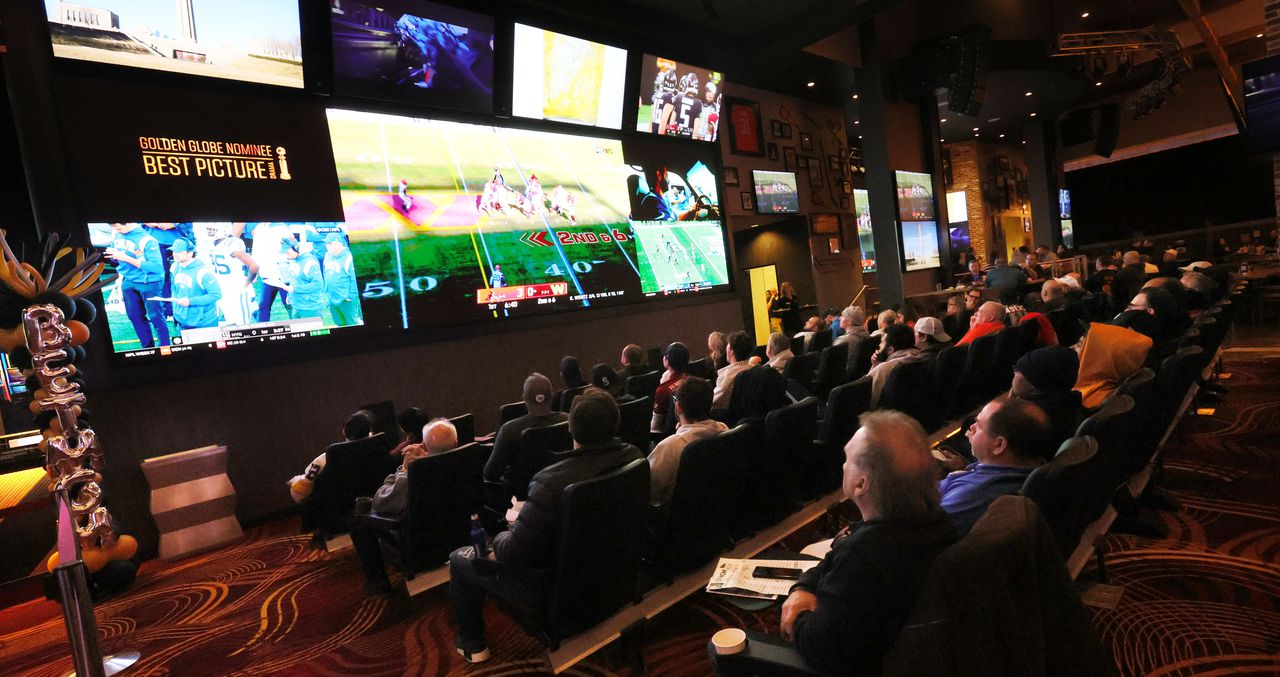
Sports betting opens at MGM Northfield Park, January 1, 2023, in Northfield, Ohio. Patrons have a choice using online betting apps, window bets or betting machines while watching the games live in the sports betting lounge. More than 30 states now have sports betting. John Kuntz, cleveland.com
If legalized in Alabama, sports betting would generate $10 million annually, according to a 2020 gambling policy report.
Sports betting has been spreading nationwide over the past five years since the U.S. Supreme Court overturned a 1992 federal law that prohibited most states from legalizing commercial sports gambling.
Nationally, 33 states and the District of Columbia, allow sports betting including neighboring Mississippi, which is weighing whether to legalize mobile sports betting. Mississippi generated close to $7 million in tax revenues from sports betting in fiscal year 2022, according to the National Conference of State Legislatures.
An additional seven other states, including Florida, which do not allow for sports betting, have worked with Native American governments to authorize it at tribal casinos.
Legislation in Georgia would allow for retail and online wagering on sports.
Tennessee, which does not have casinos, allows for sports betting. The state generated $68.1 million in revenues from sports betting during calendar year 2022, which is the highest among the Southern states compiled by NCSL.
Kentucky adopted sports betting in March, and it will be regulated by the state’s horse racing commission.
Despite the spread, problems are surfacing. States are now cracking down on how sports betting is marketed out of concerns about marketing on college campuses. Ohio’s casino control commission imposed more than $800,000 in fines on sports betting companies since January, The New York Times reported last weekend.
The Times article also highlighted the concerns of abusive behavior by gamblers toward athletes, prompting at least three states – including West Virginia — to bar gamblers if they threaten or harass athletes after lost bets.
Lottery
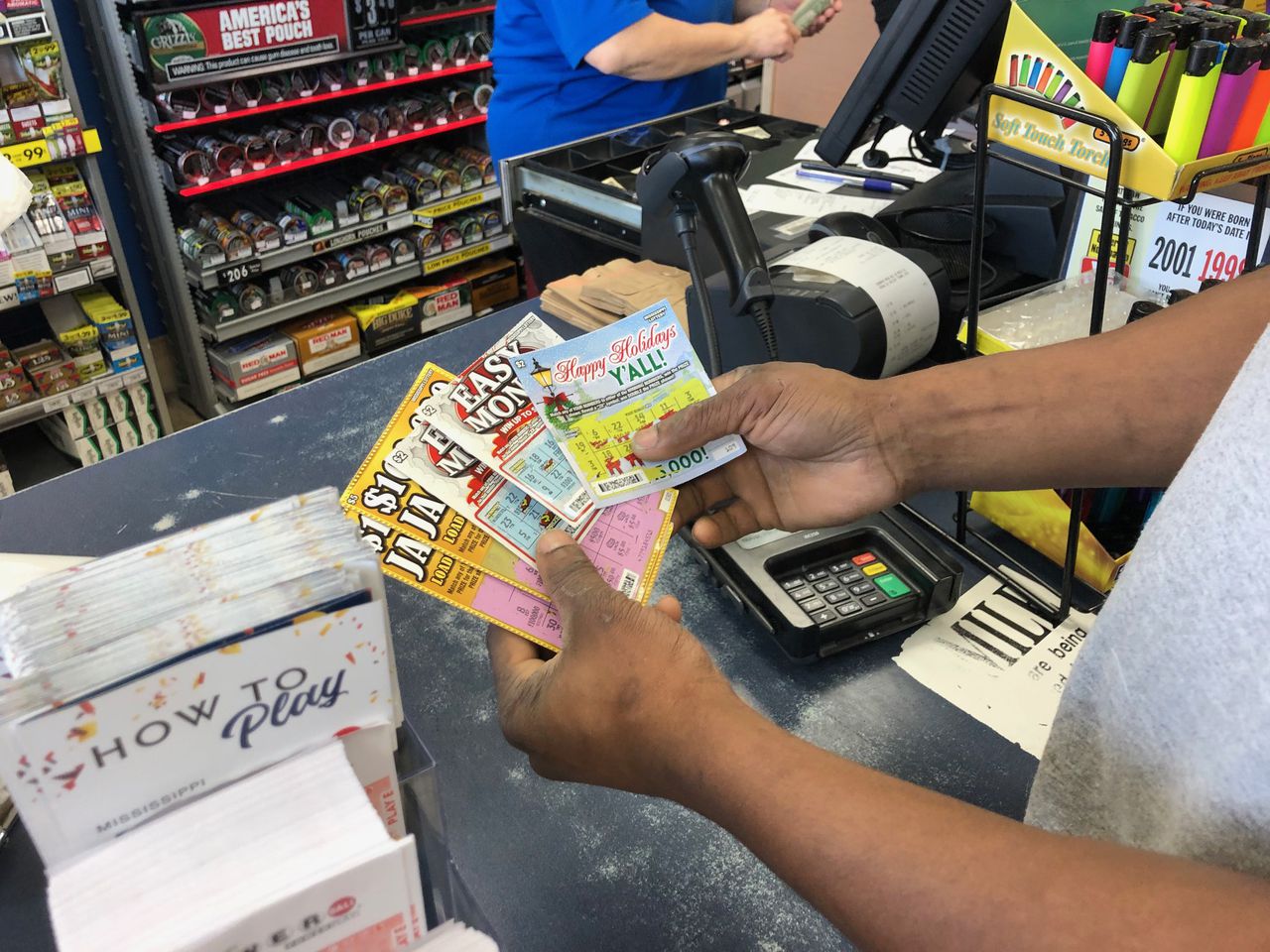
A man brings in five winning scratch offs at Keith’s Superstore in Gautier.
Alabama is one of only five states that do not have a lottery. The others are Hawaii, Nevada, Alaska, and Utah.
Hawaii and Utah have no casino gambling. Alabama and Alaska only have tribal casinos.
Nevada, long a casino mecca, has had a 159-year-old constitutional ban on lotteries. Legislation introduced this spring could institute a statewide lottery in Nevada, with one of its sponsors telling media outlets that the ban is “outdated.”
In New Mexico, a bill was introduced this year to get rid of the state’s 28-year-old statewide lottery. Its supporters argue that the poor disproportionately spend their money on lottery tickets. They want the approximately $48 million generated from the lottery to support a statewide educational scholarship program to come from New Mexico’s General Fund.
Lottery proponents argue that the small scratch off tickets and Powerball tickets bring in a big-time funds. In 2021, California, Florida and Massachusetts took in over $25 billion combined in lottery income.
Mississippi’s lottery, which has been in place since 2018, brings in close to $100 million each year to the state’s General fund.
Alabama, according to the study group’s 2020 report, would raise an estimated $200 million to $300 million from having a statewide lottery.
Danny Sheridan, the legendary oddsmaker and Mobile native, said that right now, Alabamians are supporting adjacent states by purchasing lottery tickets at convenience stores near the state border.
“Years ago, I was asked, ‘Where is the biggest lottery ticket selling outlet in Florida?’” Sheridan said. “That’s easy (I said), it’s Miami. No, it’s at the Alabama-Florida state line.”
Casinos
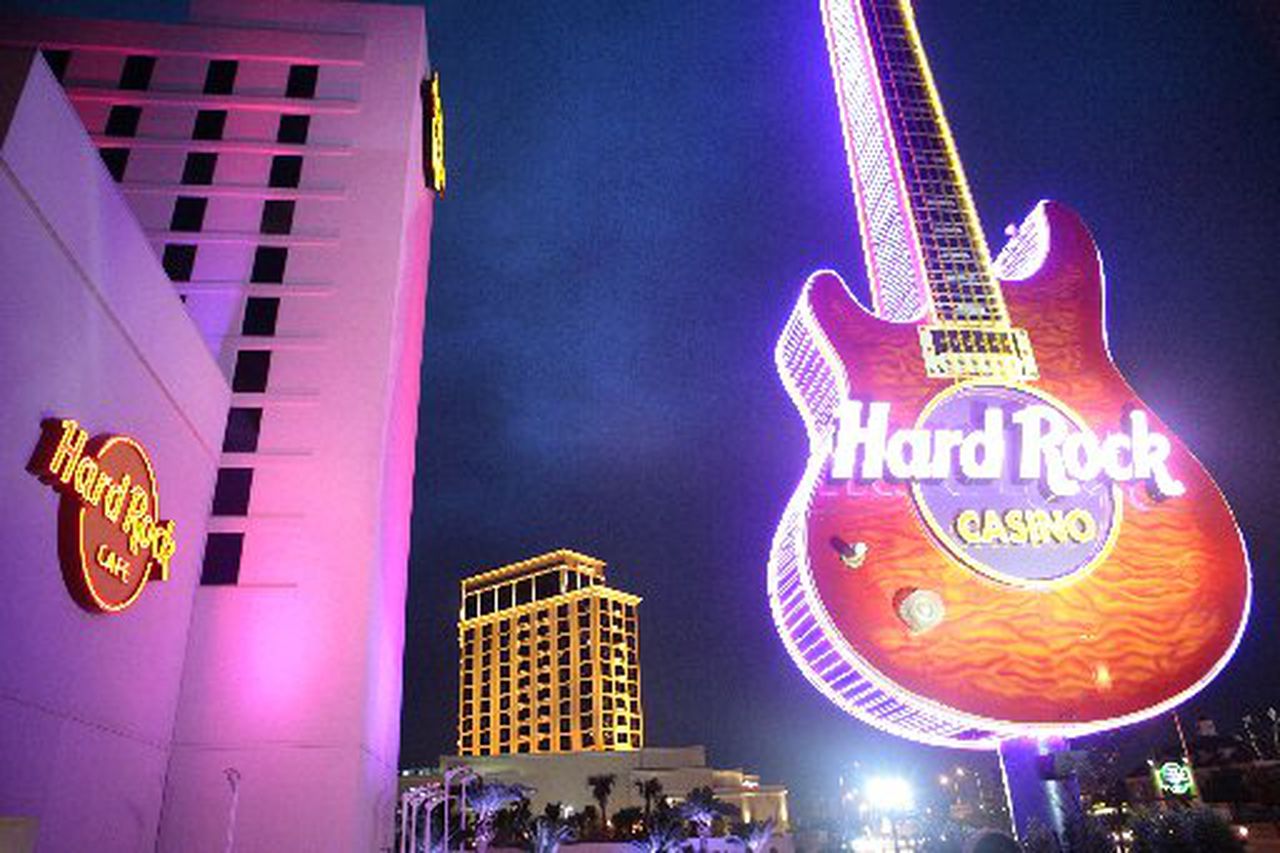
The Hard Rock Casino, with the Beau Rivage Casino in the background, on the Mississippi Gulf Coast.
Commercial casinos have the potential to bring in the most tax revenue, estimated at $300 million to $400 million, according to the study.
Twenty-four states allow private or for-profit public entities to operate a casino including Arkansas, Louisiana, Mississippi, and Virginia.
In Mississippi, the 23 casinos that operate within the state generated $2.3 billion in revenues last year, with the state collecting around $250 million.
Alabama does not generate any revenues from the casinos that are currently operating on tribal lands. Mississippi, which shares similar conservative characteristics on religion and politics with Alabama, opened its first casino in 1992.
The 2021 plan that faltered in the Alabama House included a lottery, six new casinos, sports betting, and a statewide regulatory commission.
Four of the casinos would have been at the state’s greyhound tracks in Birmingham, Mobile, Greene County and Macon County. A casino would have been placed in Houston County. The sixth would have been in northeast Alabama and operated by the Poarch Band of Creek Indians under a compact with the state.
Bingo halls
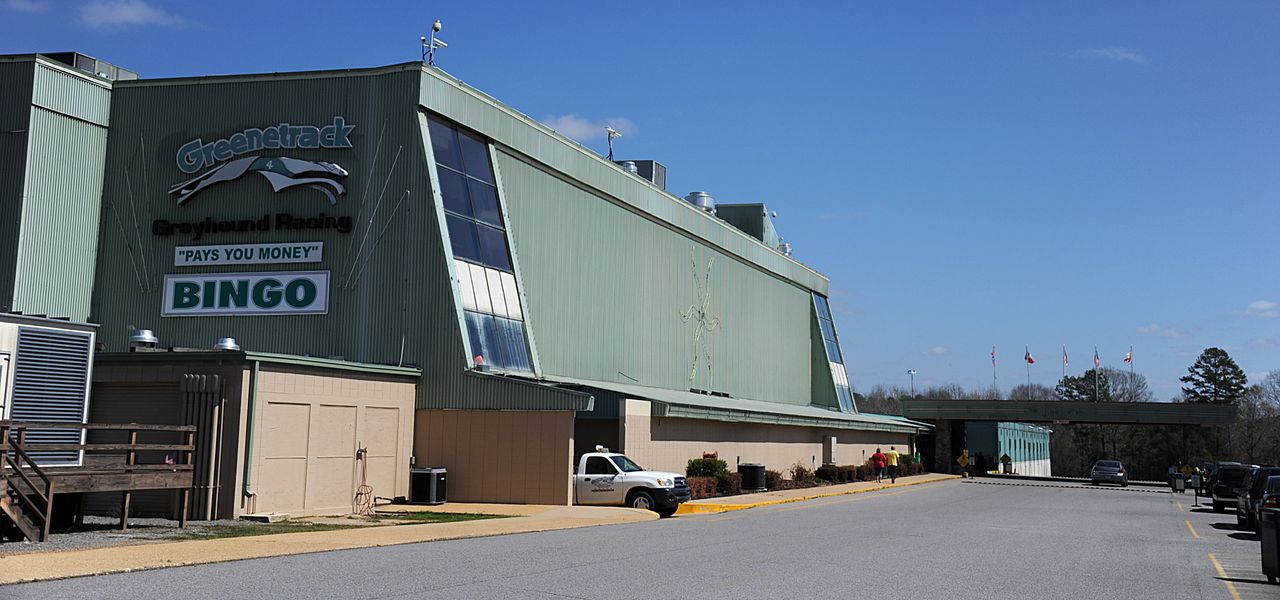
Greenetrack in Greene County, Ala. (file photo)
The state also does not generate revenues from the bingo halls that have long operated in poorer areas of the state.
Those same bingo facilities have drawn the ire of the current and past state attorneys general, who claim any forms of gambling that are not conducted on tribal lands is illegal in Alabama.
Fourteen illicit bingo halls were shut down last month in Jefferson County, prompting State Attorney General Steve Marshall to call their operations a “clear violation of the law.”
Bingo halls under the banner of charity bingo continue to operate in Greene, Lowndes, and Macon counties – areas that consist of some of the poorest regions in the U.S. – with revenues funding rural hospitals, school boards, county commissions and city governments.
State Rep. Andy Whitt, R-Harvest, who is heading up the Alabama House’s latest efforts to examine gambling, said the existing activity that is already ongoing needs regulating.
“The question isn’t whether gambling will be allowed in Alabama – it’s already operating in the open to the tune of millions of dollars a year,” he said. “We have to start regulating the existing facilities that are already operating in Alabama.”
He added, “The question is how Alabama can start sending a portion of those revenues to our coffers, classrooms and communities in order to make an already great state better.”
Related content: ‘Why us?’ Black Belt counties struggle with state of Alabama casino legislation
State Senator Bobby Singleton, D-Greensboro, said the issue is complicated in the rural Black Belt region of the state where communities with a lack of large employers are dependent on the bingo facilities.
“If they are shut down, those are families the federal government will have to take care (of),” he said. “These communities are not bringing in any other industry.”
He added, “It’s a sad state for Alabama to look at other Southern states around the country that are Republican controlled and wanting to mimic them on (critical race theory) and ballot harvesting, but when it comes to casino gambling, we act like we want our own independence.”
“The Republicans have a supermajority,” Singleton added. “They can pass a bill whenever they want too.”
It’s a supermajority that has been shockingly silent on the issue, according to one longtime Alabama political observer.
“A quarter billion-dollar revenue source politically acceptable to legislators, and this being the safest year politically to do something, and we are hearing crickets?” said Jess Brown, retired political science professor at Athens State University. “Why is it that we don’t hear anything?”
Read more on this topic: Where are the gambling bills? Alabama cashes out its poker chips before political game begins
